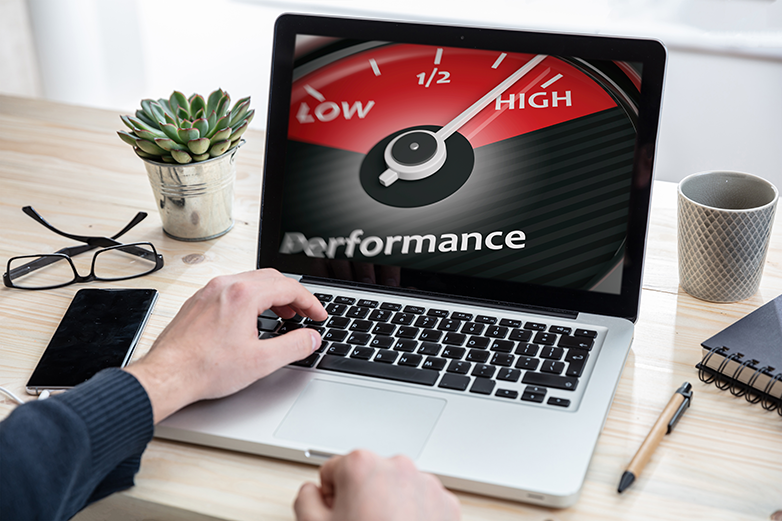Have you ever wondered how fast your computer is in terms of speed and performance? Sure, you could look at your PC’s specs and processor speed, but unless your computer is brand new, those numbers may not be one hundred percent accurate. Knowing a PC’s speed and performance rate is not critical for everyone, but if you are a gamer or someone who relies heavily on speed for work, asking yourself, “how fast is my computer?” is a valid question.
There are a few different ways to check and test speed and performance on your computer, and today, we will go over these various methods.

What Affects Speed & Performance?
As you may know, many factors affect the speed and performance of your PC. You can have the fastest internet in the world, but with low RAM storage or poor network connection, your computer’s speeds may still be lacking. Similarly, these same factors can cause lag and slow speeds on even the best, top-of-the-line PCs.
- Internet Speed: Generally speaking, overall speed and performance are not determined by your internet speeds; however, slow internet speeds will impact the pace of anything you do that requires the web. Internet speeds will determine how fast your computer can download files or data from the web and how fast information is uploaded from your computer to the internet (download and upload speed, respectively).
- Processor Speed: Processor speed (also called clock rate or clock speed) indicates how fast your computer runs. The speed is measured in megahertz (MHz), and gigahertz (GHz), and the specified value is the of cycles per second that a central processor (CPU). Also called clock speed or clock rate, processor speed is the number of cycles per second in which a CPU can process instructions. A good baseline value is to make sure that your processor speed is above 1.5GHz (if you are using Windows). Anything below that may cause slower speeds.
- RAM: Random access memory, or RAM, refers to the primary storage within your computer. It can be thought of as short-term memory or storage within your PC (for comparison, hard-drive storage would be considered long-term) and is much faster to read and write from when compared to the other storage devices in your computer. The more RAM your computer has, the quicker it opens, runs, and switches between programs. RAM plays such an important role in speed and performance because it prevents your computer from sending and storing unused RAM to the hard drive (which creates an extra step and may impact overall performance).
- Hard Drive: The hard drive on your computer plays a critical role in performance and speed. For example, if your hard drive is out of space or almost full, then you will notice a decline in overall speed. If this is the case, consider cleaning your hard drive manually, using a PC cleaning software, making sure all drivers are up to date, or considering Solid State Drives (SSD’s).
How Fast Is My Computer?
Now that we know what impacts speed and performance, it’s time for the million-dollar question, “how fast is my computer?” To answer this question, there are some speed tests you can do as well as finding the specs on your PC.
- Find The Specs of Your PC
- Go to the Start Menu
- Select Control Panel
- Choose System & Security
- Choose System
- Select the General tab, and this will show you your processor type and speed and the amount of memory you have.
- Use Performance Monitor on Windows
- Performance Monitor is a built-in diagnostic tool on Windows. It collects data and allows you to view the performance of your PC in real-time or from a logged file.
- Press the Windows Key + R on your keyboard and type “perfmon /report”
- A new window will appear saying Collecting data and will run for 60 seconds
- Go to the Diagnostic Results tab and read through the results
- Online Scans
In addition to software that can help you to clean up files and improve speed, you can also utilize the web to scan your computer to check the speed and performance of your PC. Just like with anything online, be sure to do some research and read the reviews of the scan you choose (a lot of “scans” contain software that can actually be damaging to your PC). If you want to go with a software company that is trusted, consider iolo.








